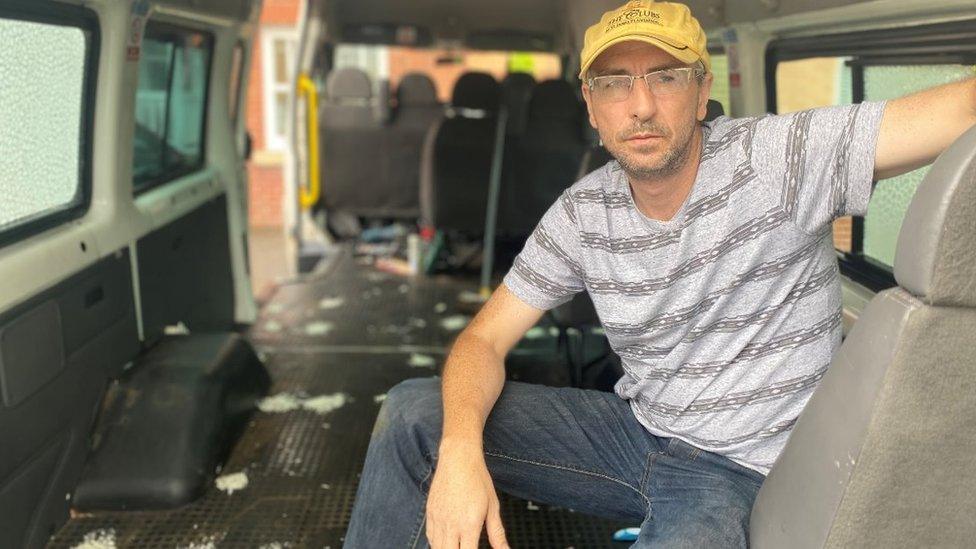Scotland should pilot drug consumption rooms, say MPs
- Published
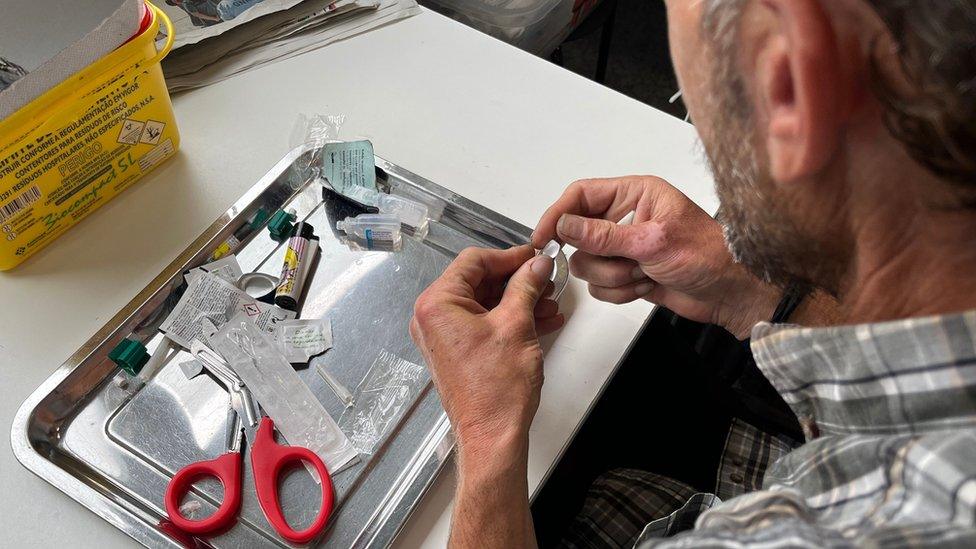
A UK government committee has backed a pilot of drug consumption rooms
Scotland should pilot the use of drug consumption rooms, a committee of MPs has recommended.
Efforts to run similar facilities in Glasgow have so far been blocked by the Home Office.
However, the Home Affairs Committee said the power to introduce them should be devolved if the UK government would not back a pilot jointly funded with Holyrood.
The Home Office said it would not consider the recommendation.
A spokesperson said the UK government's focus was on tackling the supply of drugs, and on treatment.
Drug consumption rooms are facilities where people can inject drugs under supervision.
According to studies, they can reduce overdose deaths, public injecting and drug-related litter, while a range of bodies and health experts - including the Royal College of Physicians of Edinburgh - have backed previous Scottish proposals.
Figures released last week showed that Scotland's drug deaths fell to their lowest level in five years, however it was still the worst rate in the UK and the rest of Europe.
In its latest report, the Home Affairs Committee said an evidence base for consumption rooms in the UK was needed and recommended a pilot in Glasgow.
It said: "We recommend that the government support the piloting of safe consumption facilities in areas across the UK where there is deemed to be a need by local government and stakeholders.
"In particular, we recommend the government support a pilot in Glasgow by creating a legislative pathway under the Misuse of Drugs Act 1971 that enables such a facility to operate legally."
MPs said the UK government must work with the Scottish government and local partners to establish and operate the pilot - and that it must be evaluated to establish a reliable evidence base on the use of such facilities.
They added: "We repeat the recommendation made by the Scottish Affairs Committee in 2019 that, if the UK government is unwilling to support this, the power to establish a pilot be devolved to the Scottish government."
However, the UK government insisted "there is no safe way to take illegal drugs" and said it had no plans to consider the recommendation.
A Home Office spokesperson said: "Our 10-year Drugs Strategy set out ambitious plans, backed with a record £3bn funding over three years to tackle the supply of illicit drugs through relentless policing action and building a world-class system of treatment and recovery to turn people's lives around and prevent crime."
Speaking to BBC's Good Morning Scotland programme, the Scottish government's drugs and alcohol policy minister, Elena Whitham, welcomed the committee's findings.
"We have long called for agreement from the UK government to allow us to do this, whether to support us in establishing a pilot or through devolving the necessary powers to allow us to do so," she said.
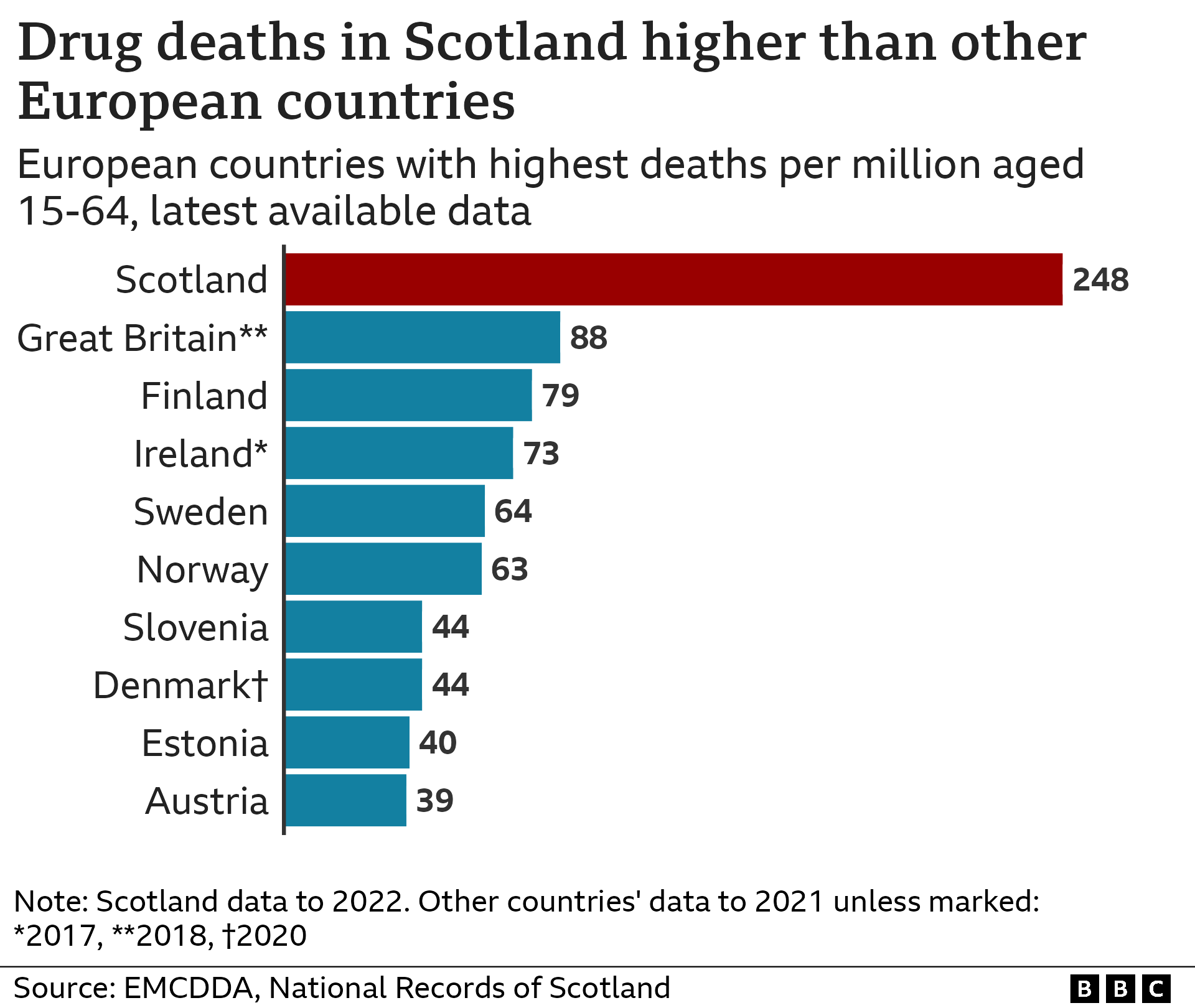
The report also recommended that the Home Office and Department of Health and Social Care (DHSC) establish a national drug-checking service in England to enable people to submit drug samples by post anonymously.
The MPs said a UK-wide drug-checking service would be the most effective approach.
They also called for on-site drug-checking services at temporary events like music festivals and within the night-time economy.
They said the Home Office should establish a dedicated licensing scheme for drug checking at such events before the start of the summer 2024 festival season.
The committee said it was "disappointed" that the Home Office had "repeatedly refused" to publish a 2016 report by the ACMD - a body which it said seeks to provide scientific, evidence-based recommendations to support the development of evidence-based drug policy.
Calling for the report to be handed over - at least on a confidential basis to the committee - the MPs said withholding it "contravenes established practice and undermines the ACMD's transparency".
'Learn from successes'
In 2020, activist Peter Krykant set up his own so-called "safe consumption van" in Glasgow without official funding or permission from authorities.
He was helped by Glasgow MSP Paul Sweeney.
Experts from three universities studied the use of Mr Krykant's injecting van and found nearly 900 injections were supervised and nine potential overdoses were prevented.
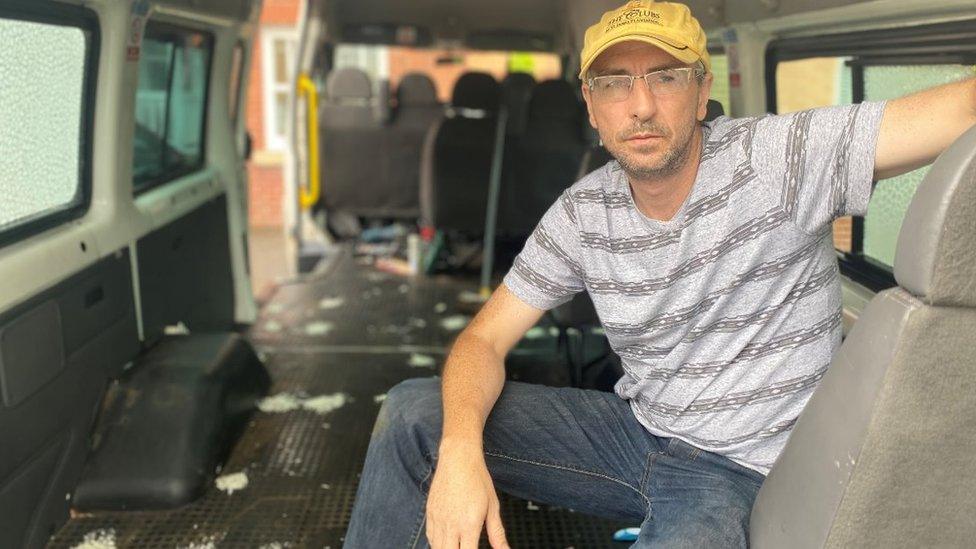
Peter Krykant bought the van after raising money with a crowdfunder
Dame Diana Johnson, who chaired the Home Affairs Committee, called on the UK government to learn from the successes of local schemes.
She said: "Simply attempting to remove drugs from people's live hasn't worked. They need the right support to let them deal with addiction, but also psychosocial support and interventions that deal with the underlying trauma that may have led them to drugs in the first place.
"Over the course of the inquiry, we have seen a number of positive, locally-developed schemes make a real difference to those suffering from addiction and the wider communities.
"The government should learn from the success as it develops best practice that can be implemented nationwide."
- Published22 August 2023
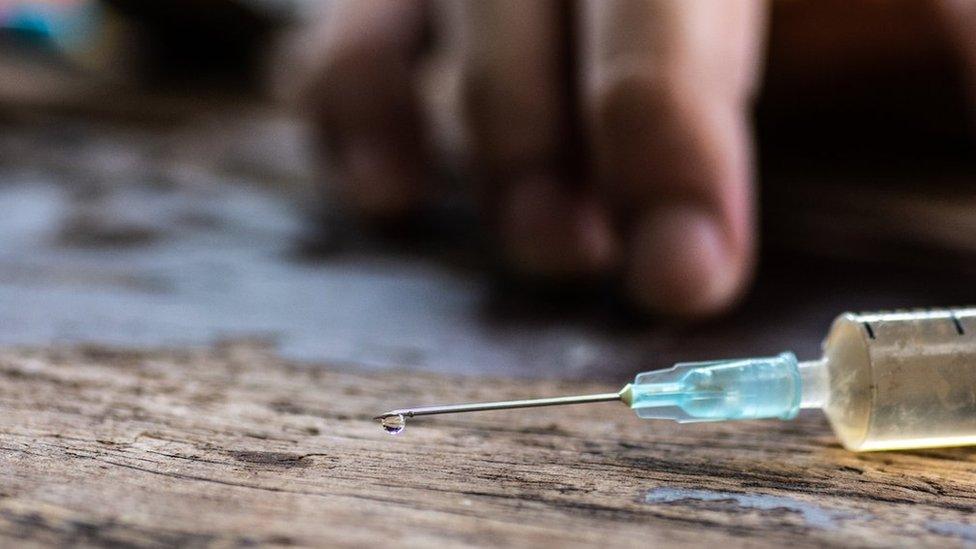
- Published31 August 2023
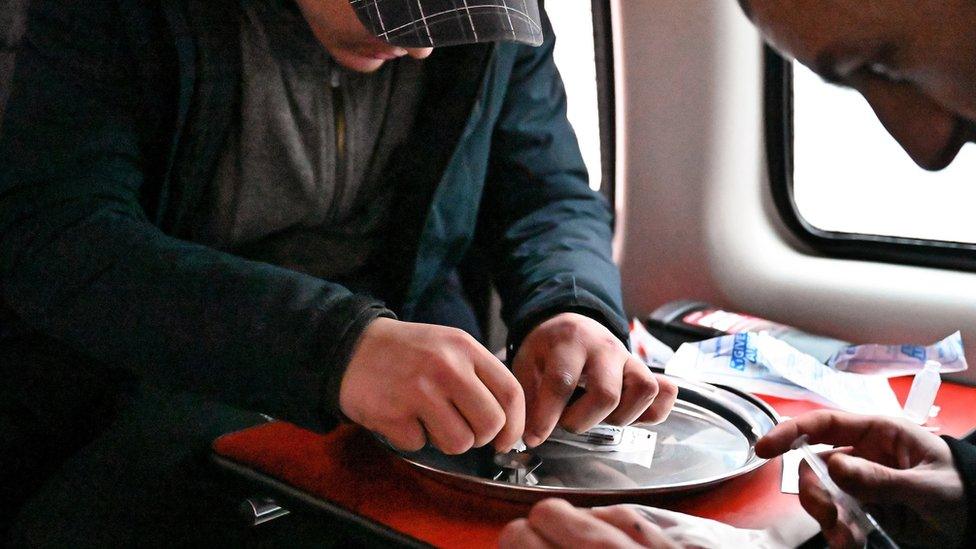
- Published2 September 2020
